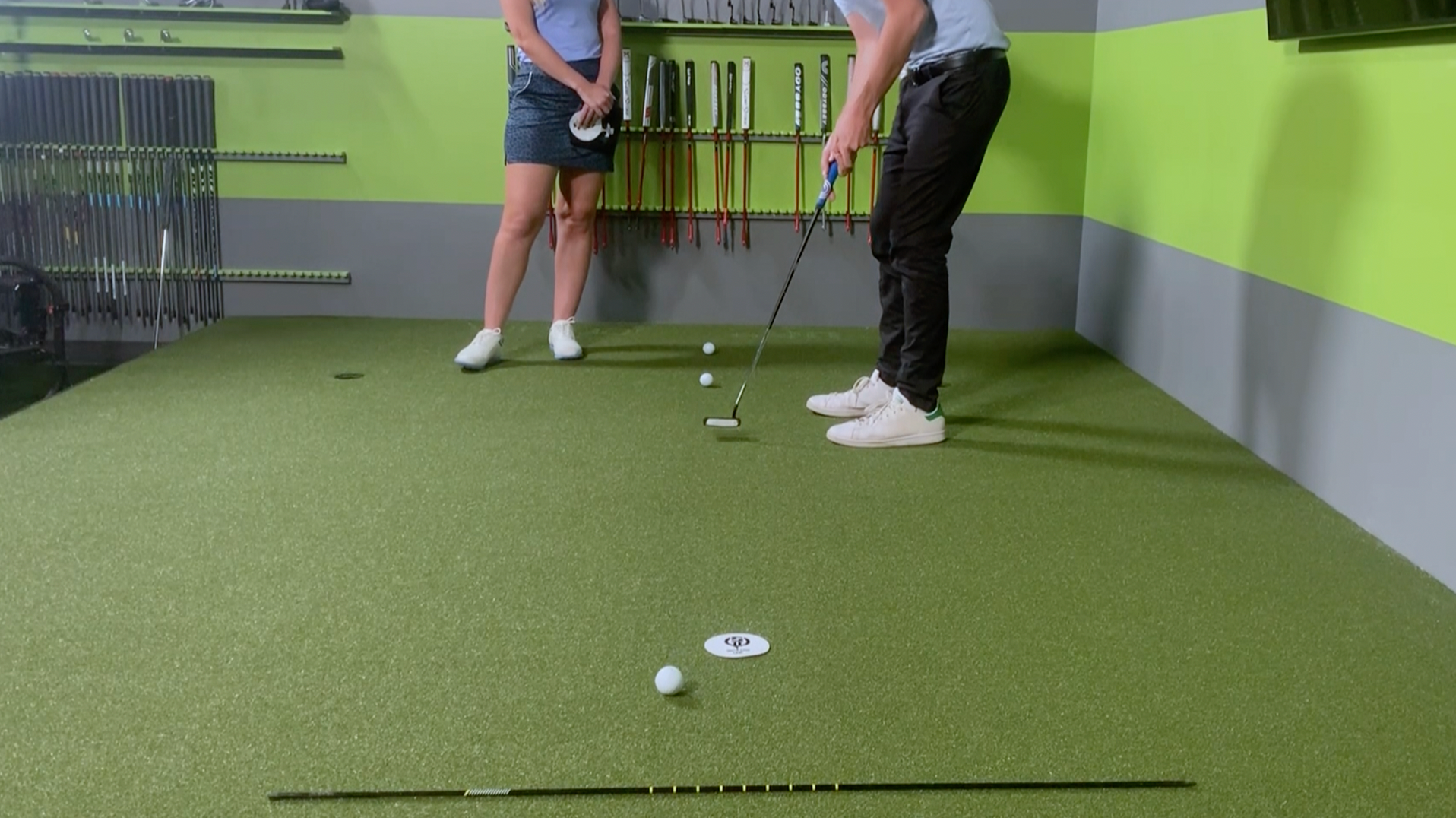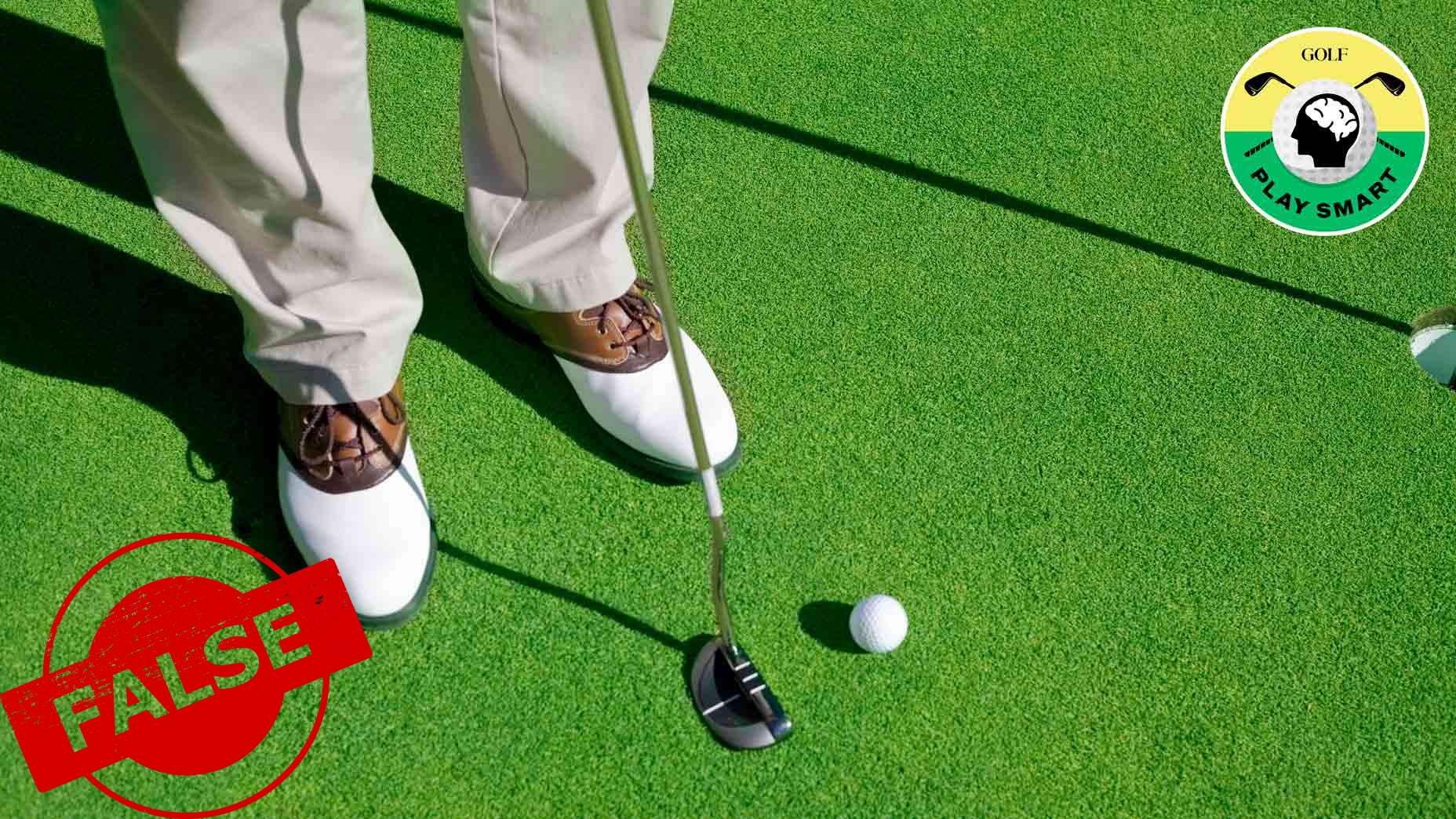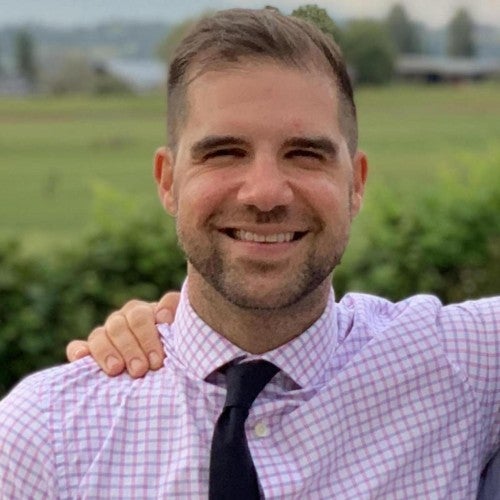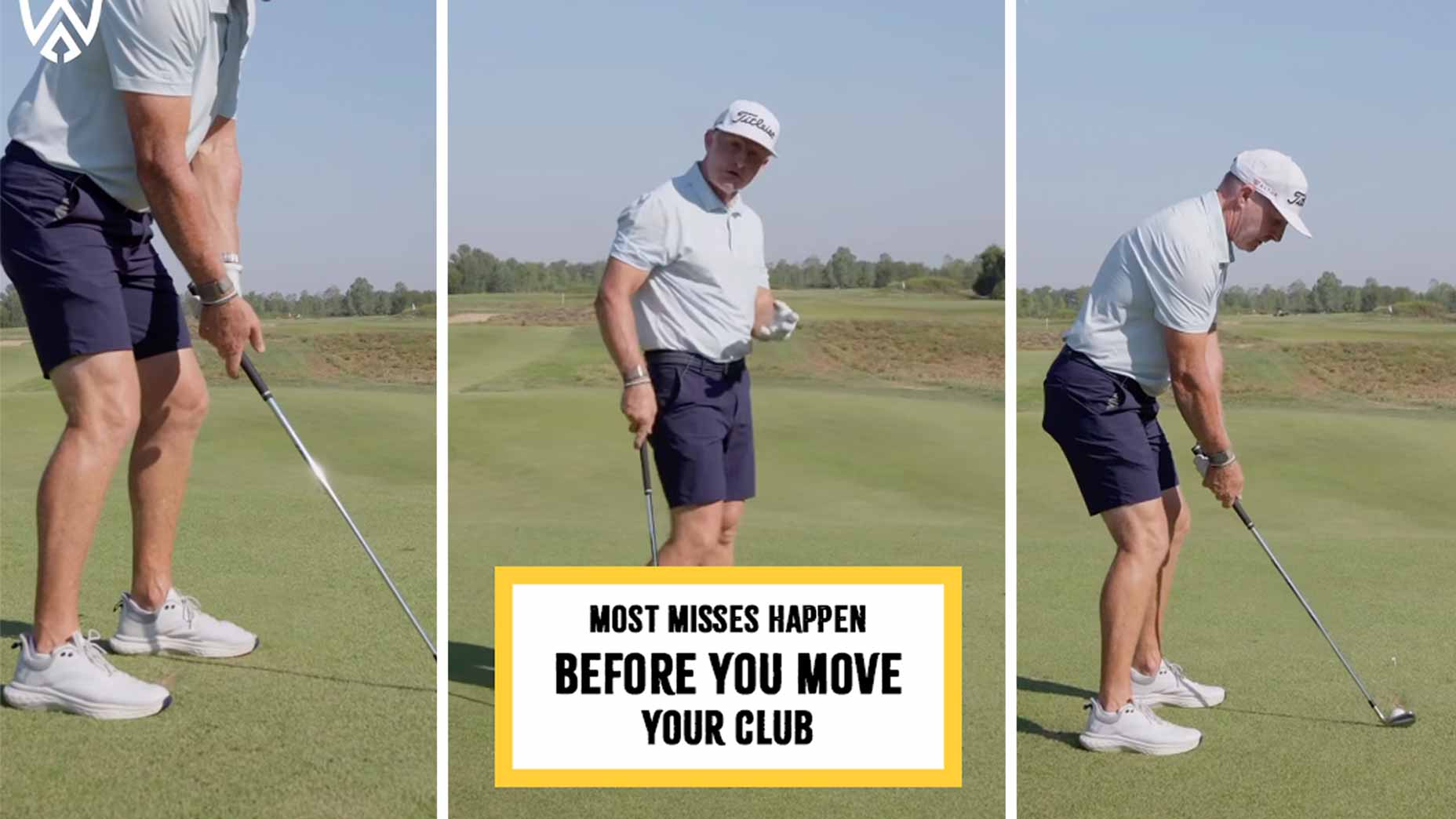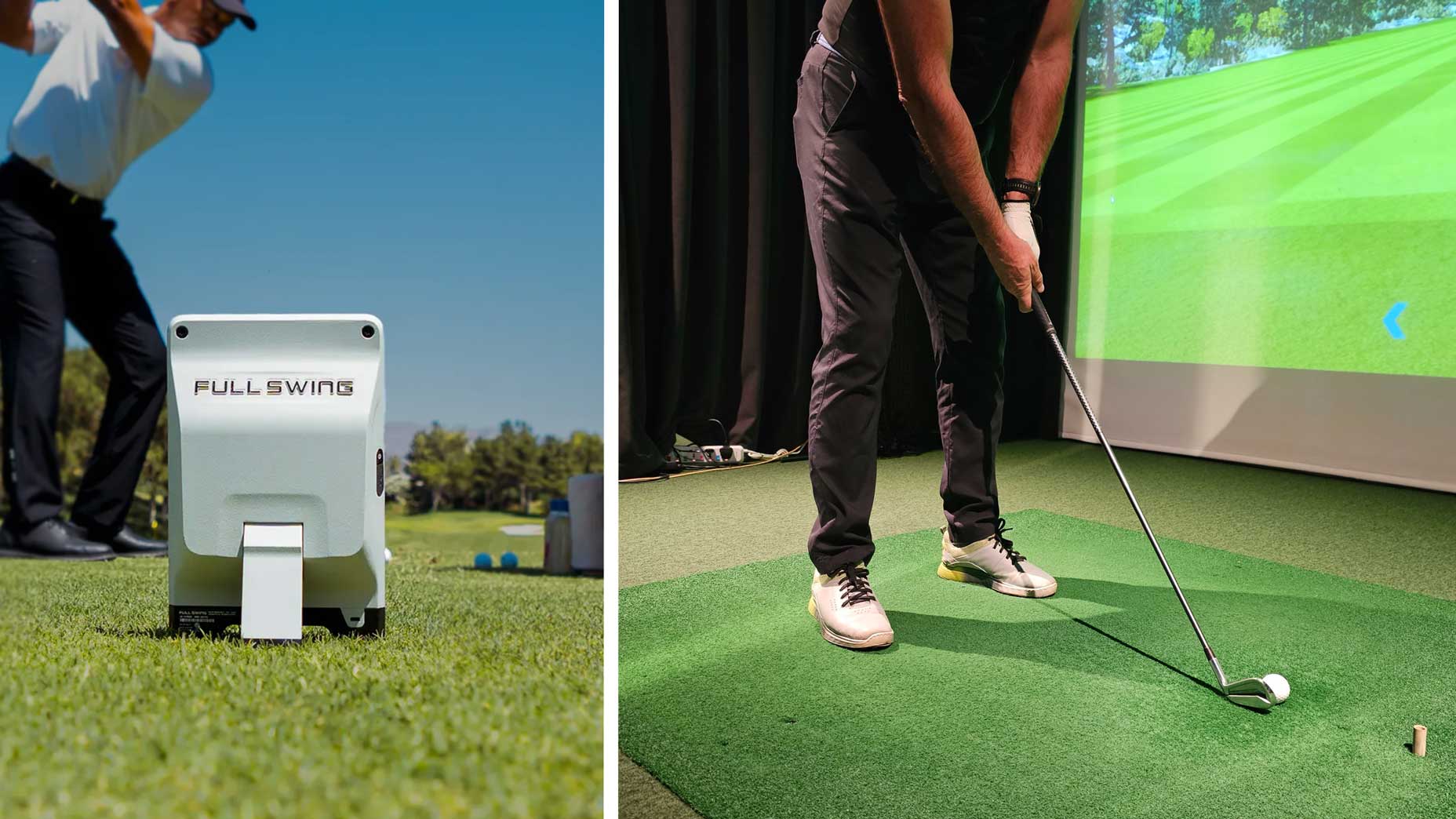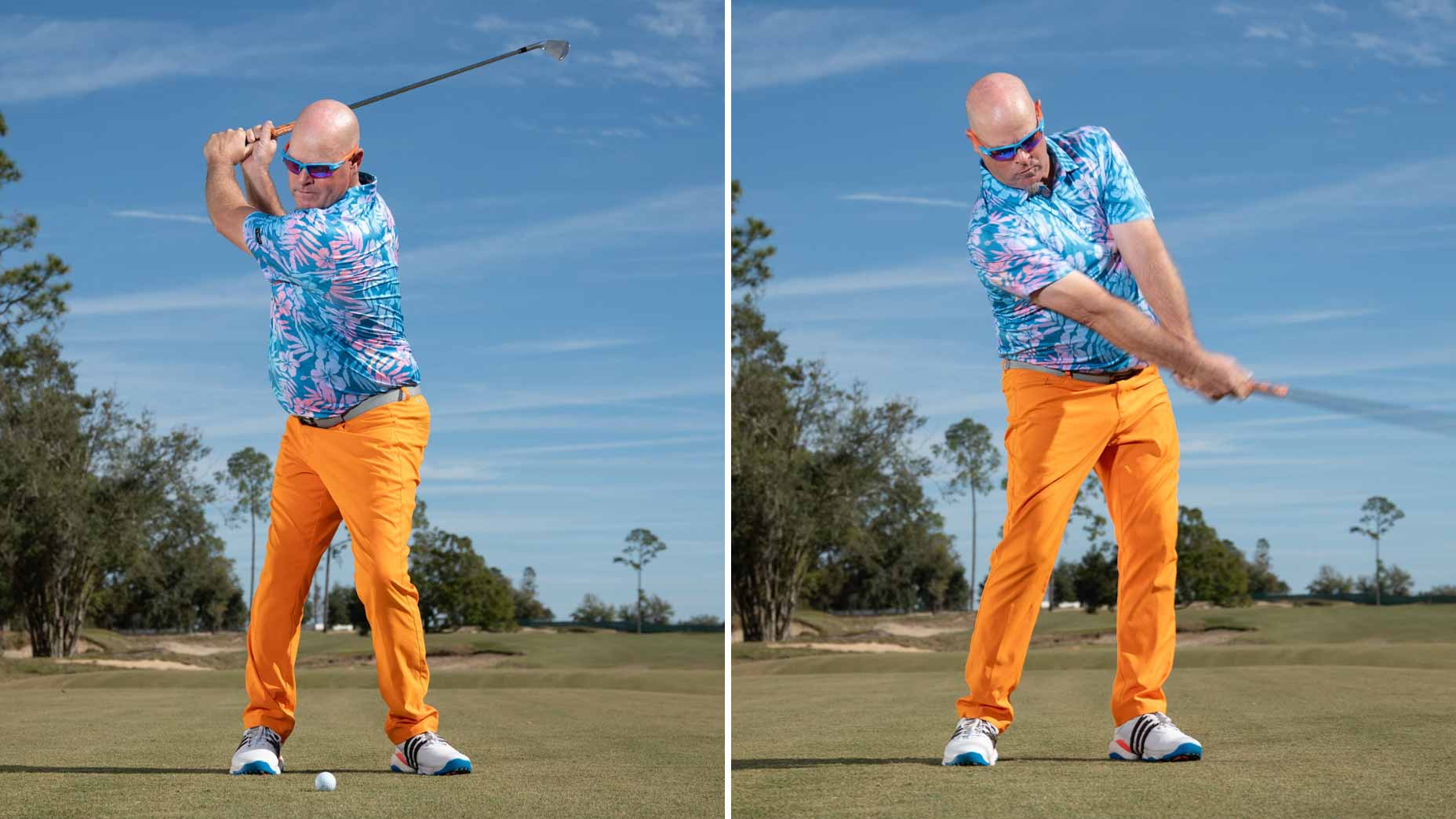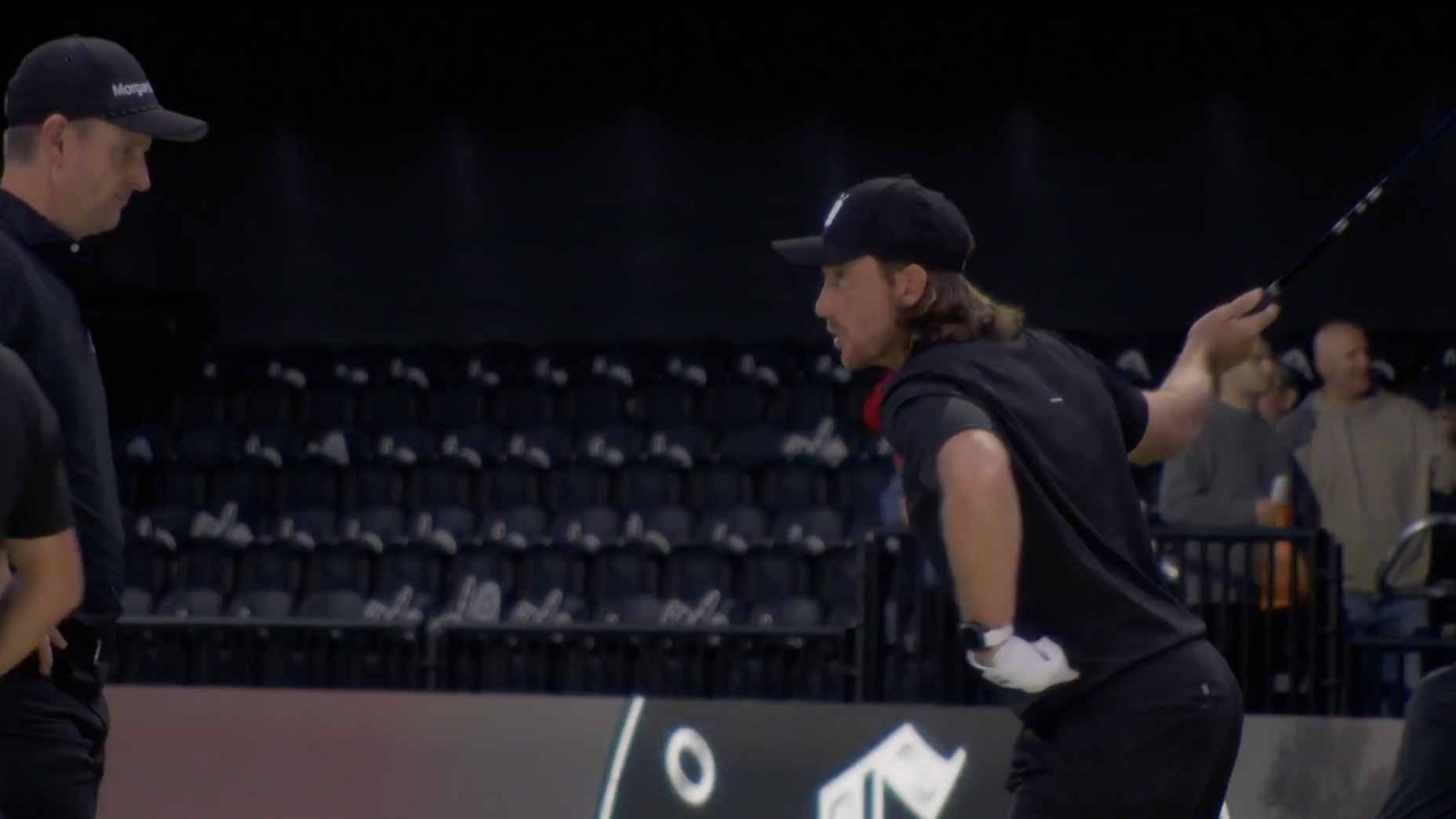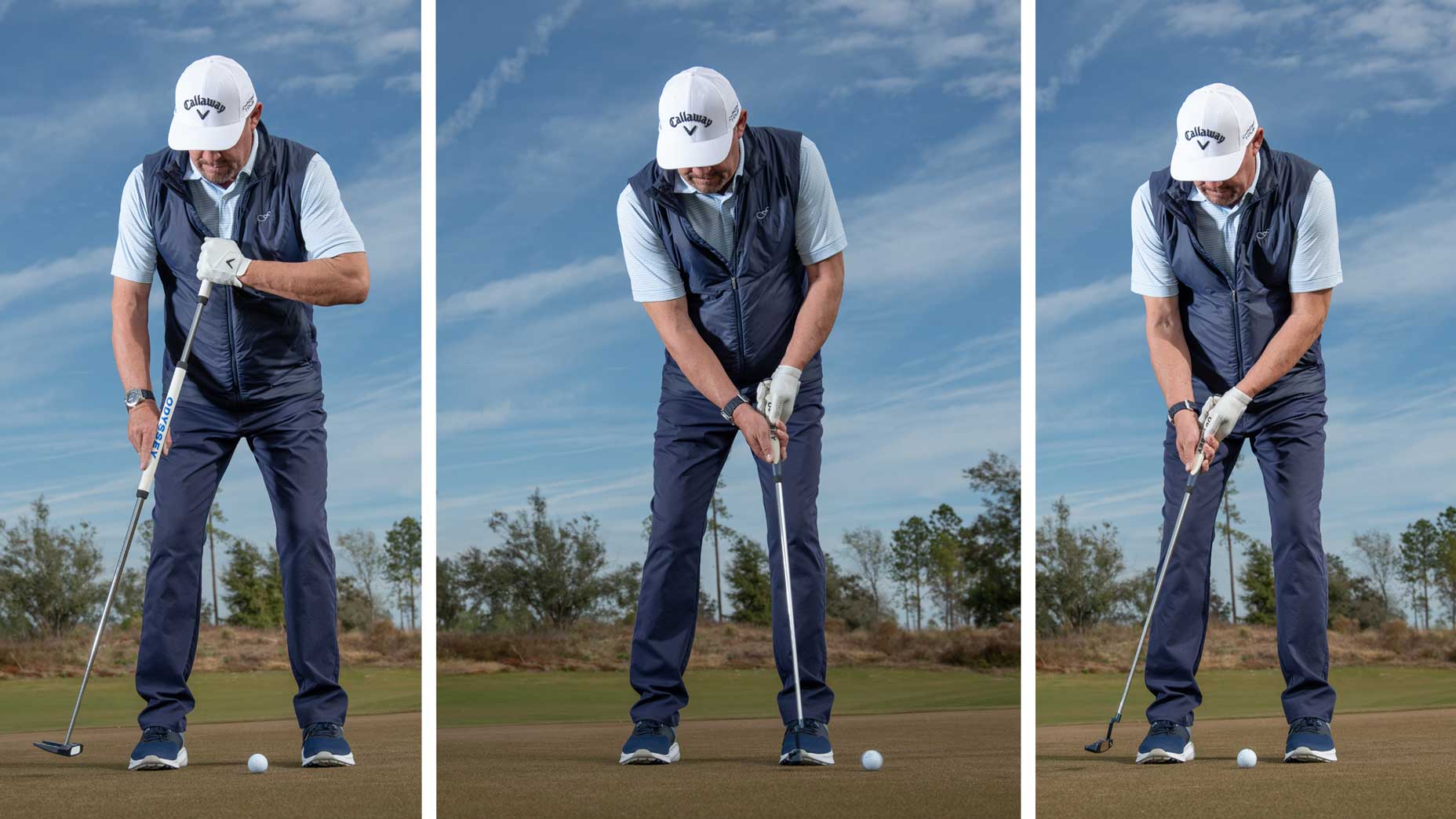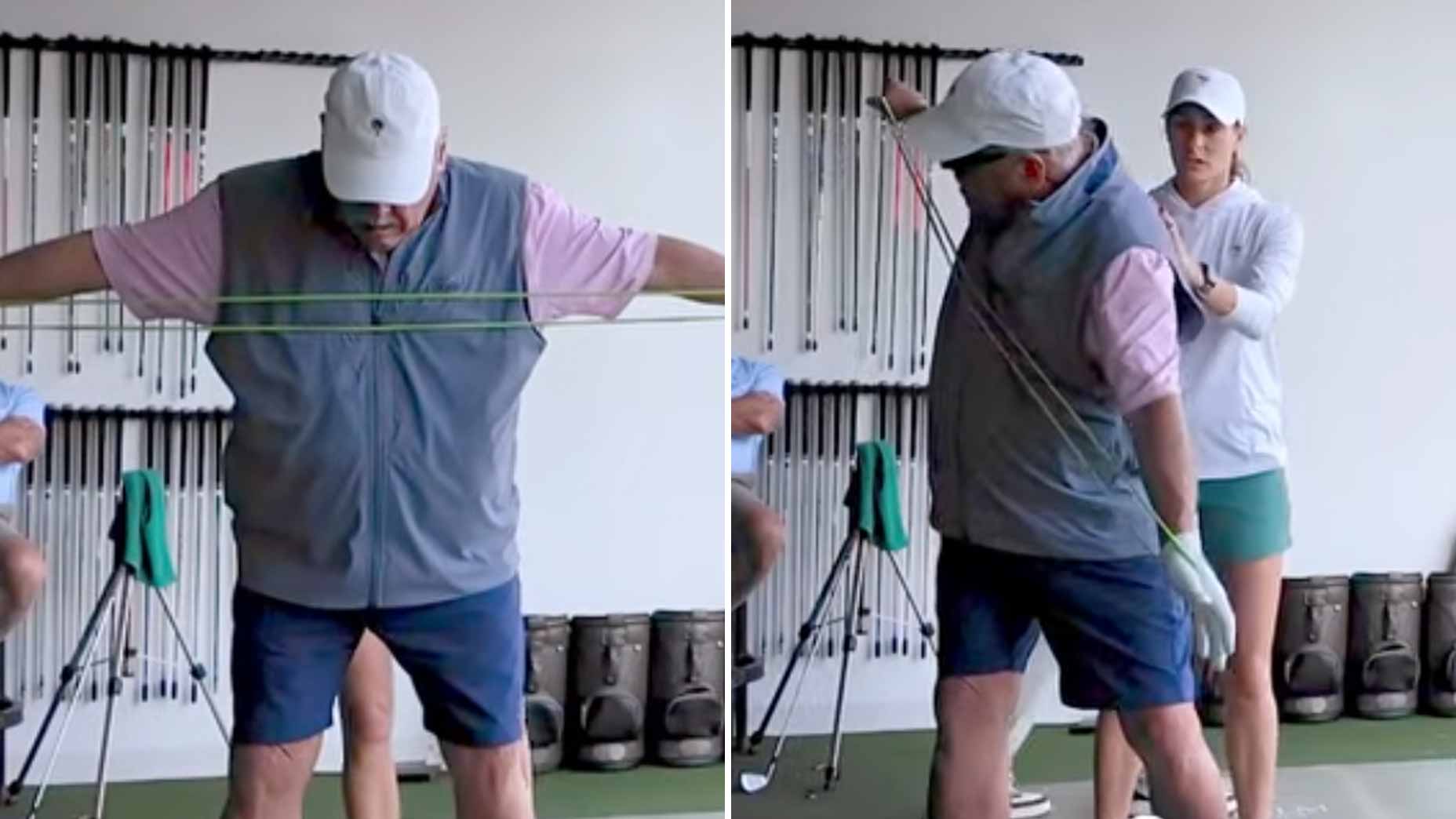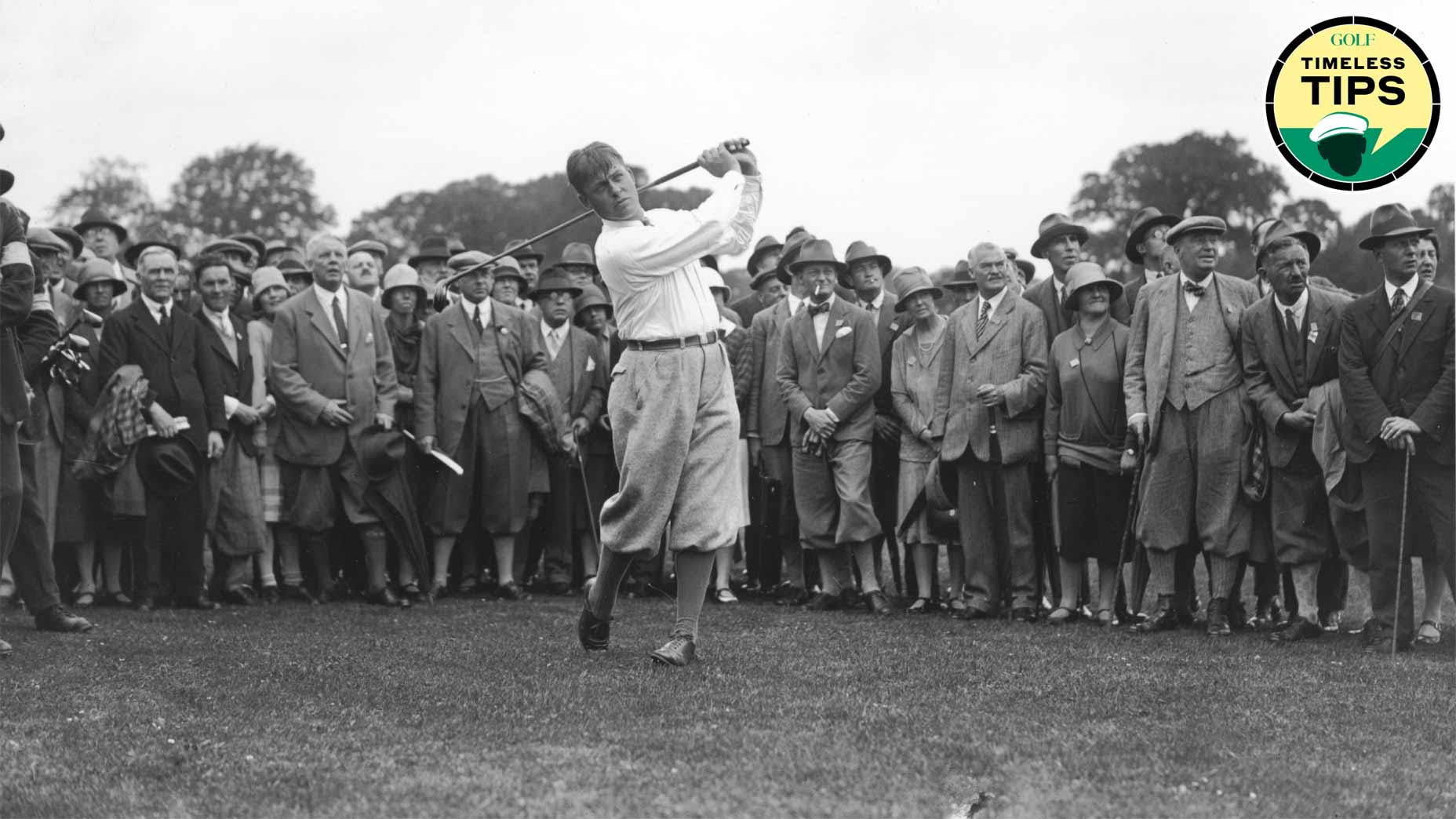There’s a very good chance that the first thing you worry about on the putting surface is where to aim. Why wouldn’t it be, right? The purpose of golf is to get the ball in the hole in as few strokes as possible.
But what if I told you that approaching your putts this way is wrong, and, instead, you should concentrate more on distance control?
According to GOLF Top 100 Teacher Jon Tattersall, putting speed is the top priority when using the flatstick, which many amateur players don’t realize.
“If I know speed, I can then work on the read,” says Tattersall. “Everybody worries too much about direction with putting; not enough about distance.”
To help change your mentality on the putting green, the video above shows a drill that Tattersall thinks can help. Check out more details below.
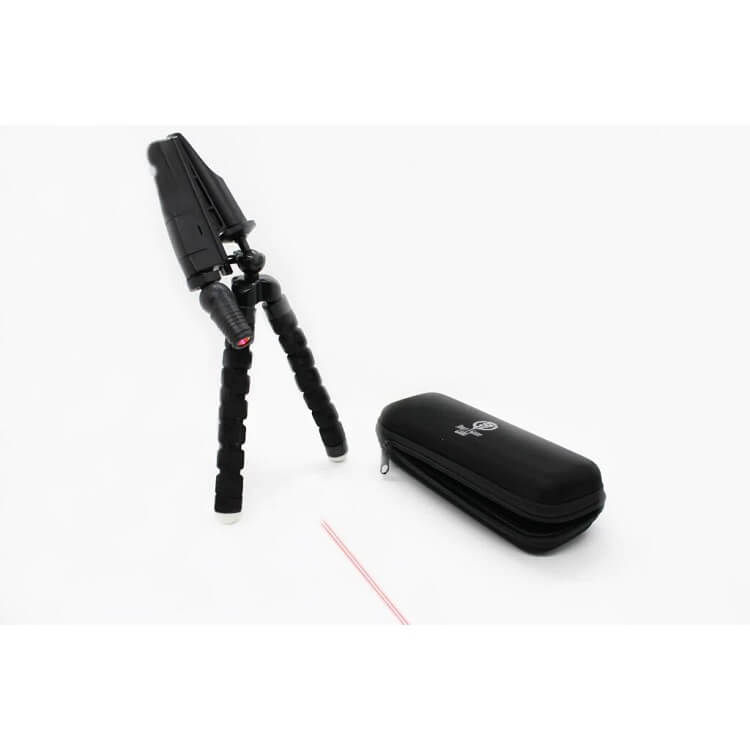
Short Game Gains Precision Putting Laser
This distance control drill can decrease putting strokes
In the video, Tattersall explains how “the speed that the ball comes off the putter is faster than any other club in the bag.” This may be a bit surprising to some golfers, but it further emphasizes the importance of speed control while putting.
To do this, a player must avoid decelerating through contact — which is a common issue Tattersall sees with students.
Where your golf ball position should be while putting, according to a Top 100 TeacherBy: Nick Dimengo
“Most golfers I see on the golf course, they’ve been told to decelerate. So you see a very short backswing, and a very long follow through. Now they’re over accelerating the putter, and they have no idea what their putting impact speed is.”
In order to offset this, Tattersall recommends using tees to get the feel of how the putter should swing from back to forward. He demonstrates how it should look in the video, with the putter hitting a tee that’s placed by his right toe (for right-handed players). The image below shows this.
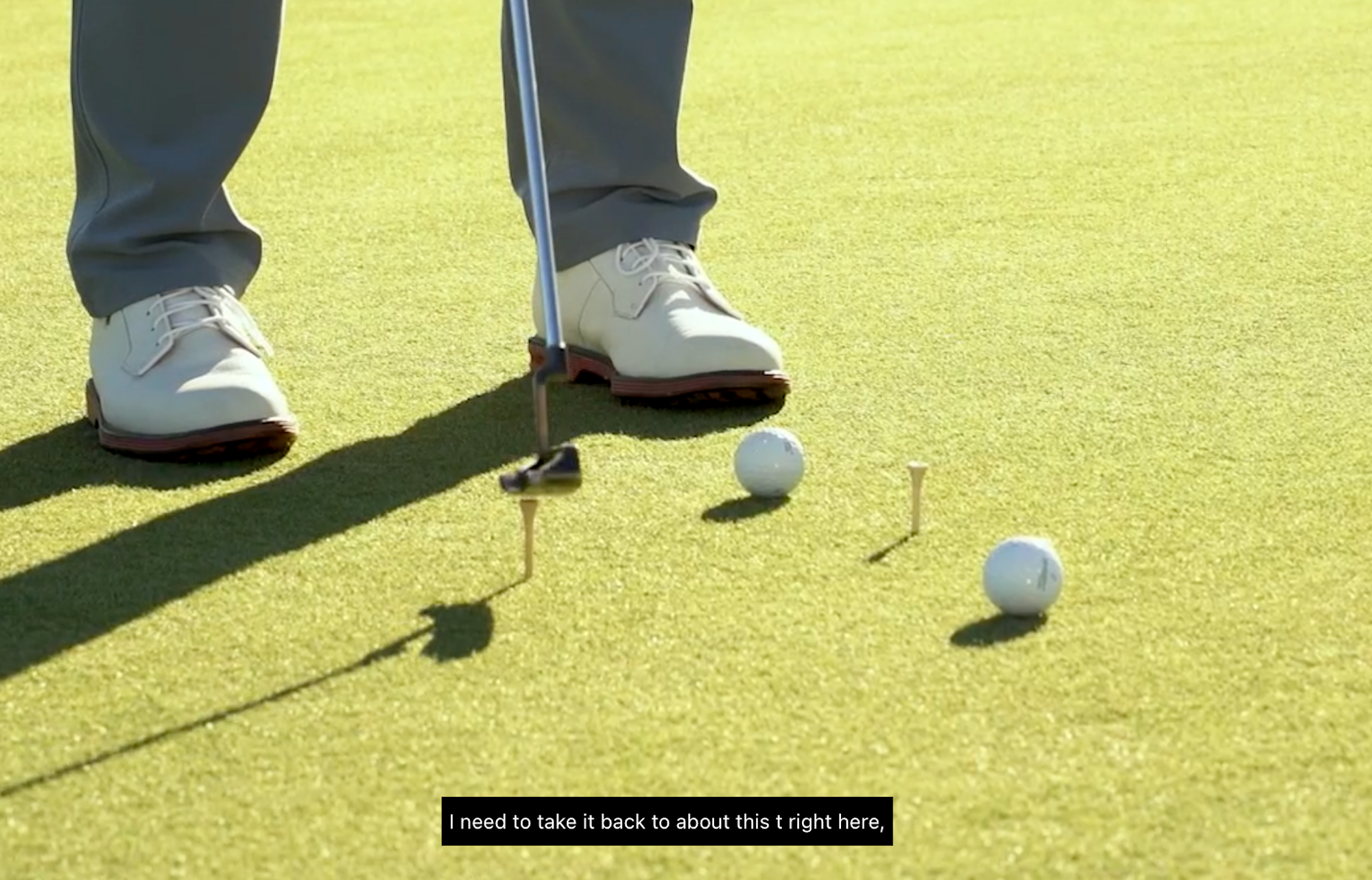
“One of the things I know is, roughly, how far back I need to take the club from calibrating things, to how far the ball is going to roll,” adds Tattersall. “So [I’ve got] about an 18-foot putt here. If I apply the same force back and through, I need to take it back to about this tee right here — which is about my right toe [as a right-handed player]. Then just kind of gently let it accelerate.”
By practicing this drill, a player will build up muscle memory through repetition. The impact will be a more fluid putting stroke that produces improved results, leaving longer putts closer to the hole.
“I’m not trying to go back slow and accelerate through the putter too much. I’m really trying to put the same energy back and through, and not just go back and then accelerate. If I do this [drill] well, the length of my backswing should be a little shorter than my follow through.”
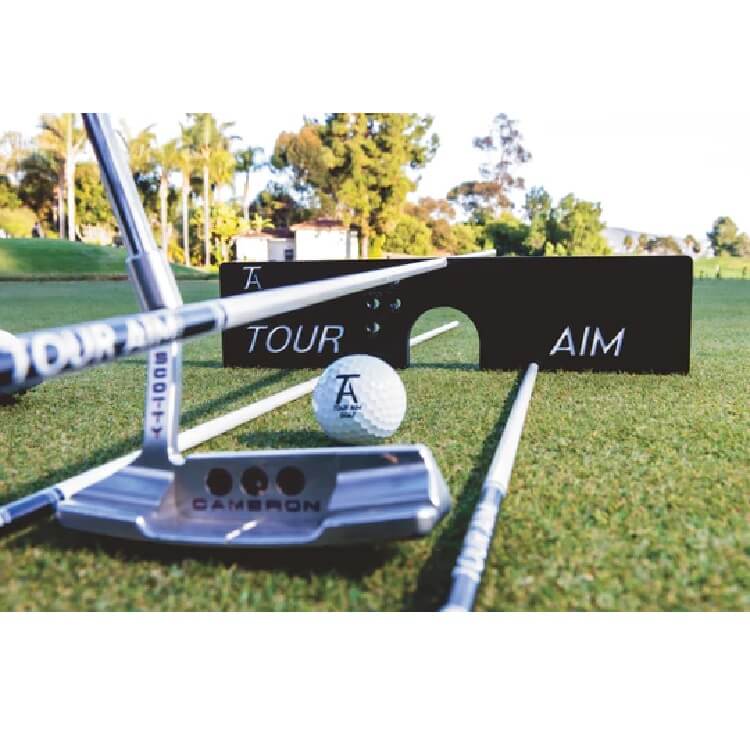
Tour Aim With 3 Alignment Sticks
